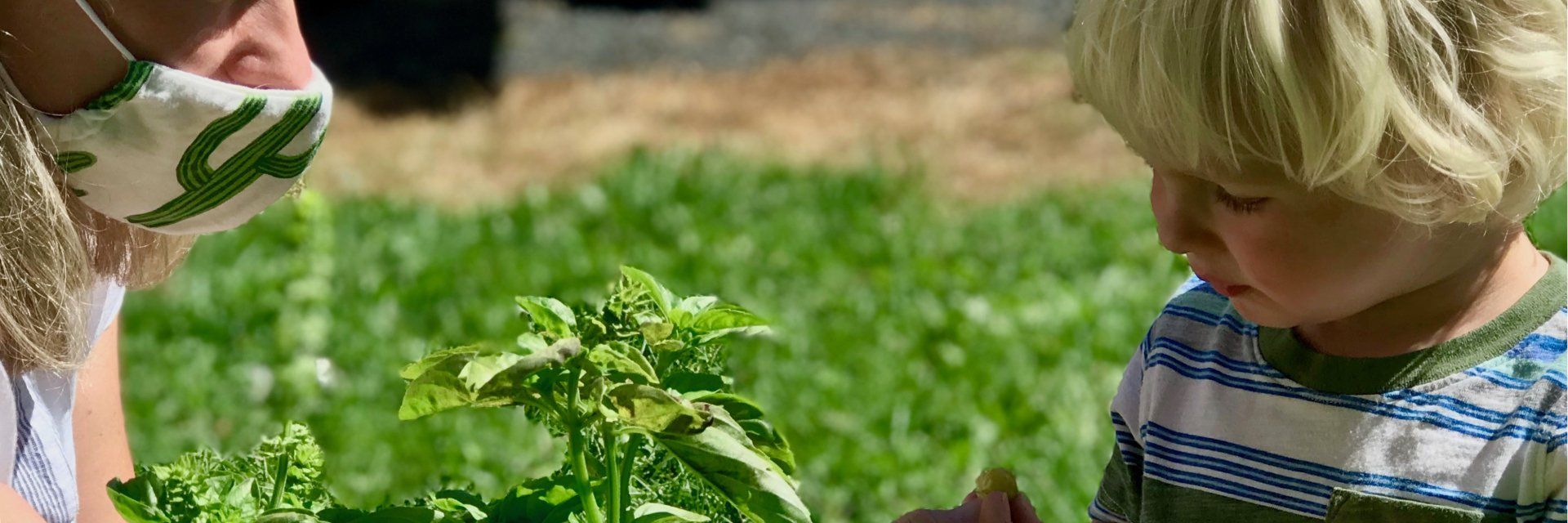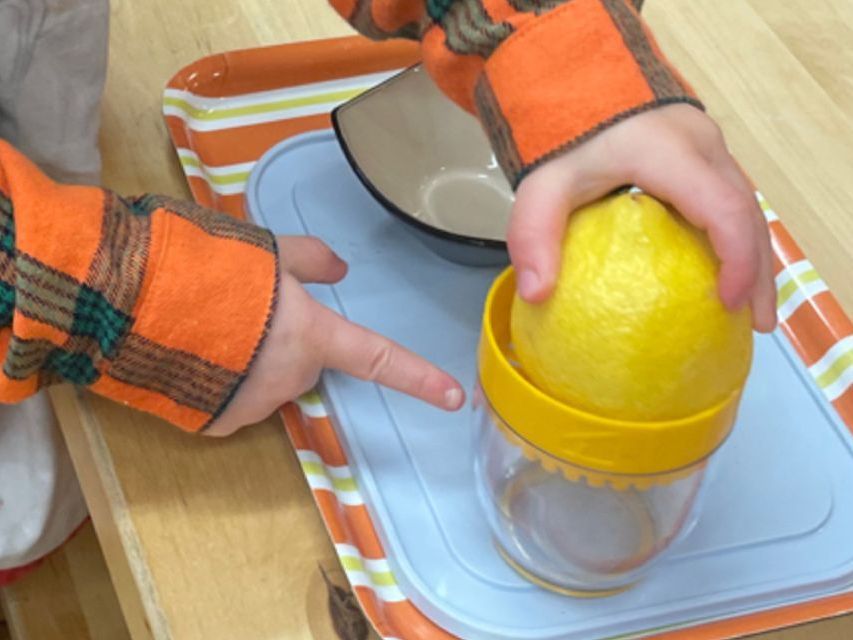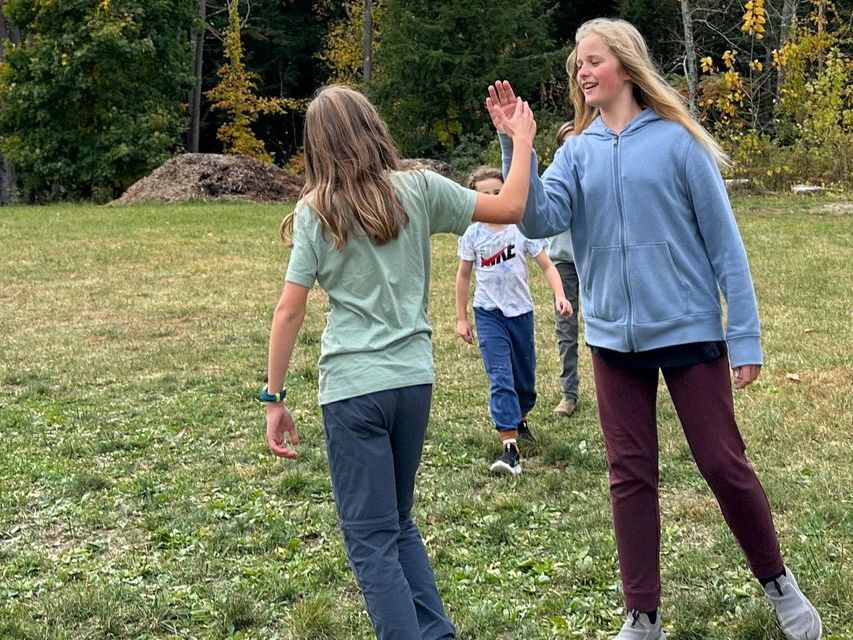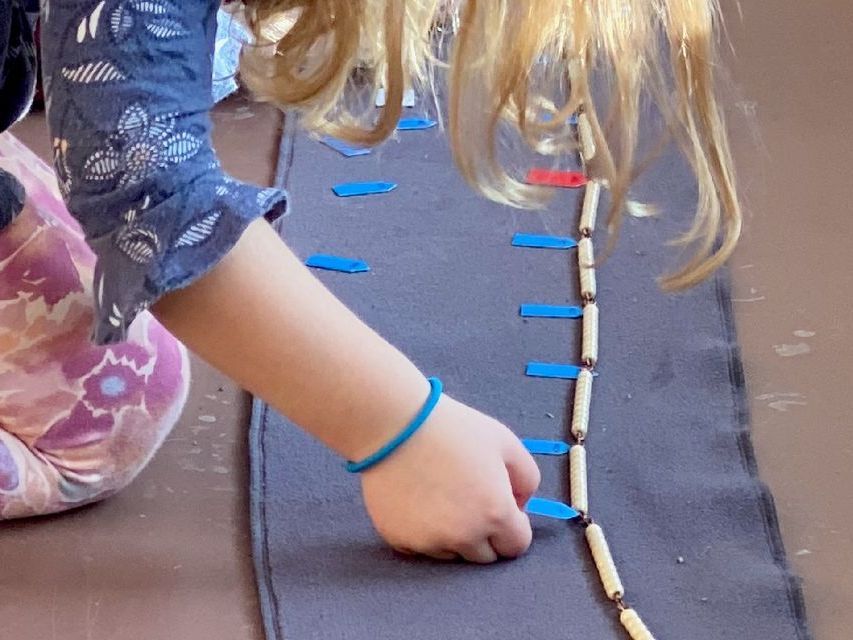5 Ways to Support Summer Learning

Just because your child may be taking a break from school, their learning doesn't need to stop. Learning is a beautiful and continuous journey, and summer can be a special opportunity to spend a bit of extra time together. Our children may not have formal math lessons, botanical classifications, or grammar work over the next couple months, but that doesn’t mean there isn’t so much more to discover!
Here are five simple tips to help your child stay engaged and curious over the coming months.
Follow the Child
Take the most essential Montessori mantra and let it guide you. Is your child into dinosaurs? Ancient civilizations? Animals? Whatever it is they feel passionate about lately, help them dive deeply into learning about it as much as they can. This may mean collecting books on the subject matter, helping them create projects, taking day trips to enhance their learning, or consulting online museum resources for ideas.
Not sure where to start? Pay attention to the types of activities your child gravitates toward naturally. Do they like to move their bodies a lot, or are they more likely to curl up in a quiet corner? Are they more interested in independent or cooperative work/play? Are they focused on precision and order or do they seem constantly sprawled out over a large area?
So much of a child’s inclinations have to do with their age and developmental phase, but a large portion is wholly individual. It may feel new to you, but try to slow down and notice. You may be struck by the insights you gain, and it will certainly point you in the right direction.
Make Memories
Whether you’re home all day or working extra hours, there are plenty of ways to make important connections with your child while incorporating a little learning. Vacations are nice, but children don’t need grand gestures to look back fondly on their summers. They probably won’t remember most of the little details of what you do together, but the emotions and feelings connected to those experiences will absolutely stick around.
A few ideas to get you started:
● Working late? Call and read a bedtime story over the phone.
● Plant a garden (even a mini container garden will do) and tend to it together on a daily basis. Notice the changes not only in the plants, but in the other creatures that begin to interact in the garden area.
● Sing songs together.
● Cook together and involve your child in as many of the steps as is developmentally appropriate. There are endless practical life and math skills to be gained in the kitchen.
● Keep a journal or scrapbook together. Depending on your child’s age and interest, this could take on various forms.
Create a (Loose) Schedule
Lazy days stretching out endlessly feels gloriously freeing, but after a while things can get a bit stale. Having a schedule, even if it’s a flexible one, can give children the structure they crave while making sure they have plenty of time to relax and explore. Make sure they get up and go to bed at regular times (even if those times are a bit later than during the school year). Keep any chores or expectations in place throughout the summer months.
Some families find that having a weekly outline can take the guesswork out of making plans and give children something to look forward to each day. Weather, appointments, or special events may necessitate changes from week to week, but that’s okay! Here’s a sample of what we mean:
Mondays: Beach day
Tuesdays: Library day
Wednesdays: Have friends over
Thursdays: Take a day trip
Fridays: Art project
Spend Plenty of Time Outdoors
This will look different for every family, but everyone benefits from daily time spent in natural spaces. If you don’t have a lot of options locally, go with what you’ve got. If you’re lucky enough, mixing it up from week to week makes things interesting!
Local Parks - Many communities have small local parks. Your child might enjoy playing on a playground, running around in an open field, or maybe climbing a tree or two. Just being in green spaces is highly beneficial physically, mentally, and emotionally. (Plus, all that spent energy might mean a good night’s sleep!)
State and National Parks - Larger parks offer different opportunities. Some may have kiosks that explain the unique features of the park, or even guide visitors toward points of interest. These are the types of places that families can visit again and again, discovering new things each time.
Hiking - Looking to revisit an old hobby or start a new one with your child? Hiking is a great activity with lots of health benefits that can be done pretty much anywhere. Whether you have access to mountains or you take a historic walk through a dense urban center, hiking creates endless learning opportunities as well.
Swimming - What more can we say about this? Swimming is a classic and fun way to cool down from the hot summer heat!
Your Yard - We mentioned gardening above. Planting things that need daily care is one way to get outdoors. It can also be nice to encourage unstructured playtime outdoors. You might set up a sprinkler for kids to run through, or take out some bubbles or sports equipment. But, you might also just let them figure out what to do on their own. Even a small backyard presents infinite possibilities for the curious child.
Incorporate Reading
You’re probably not surprised to see this on our list! We encourage all families to find ways to work reading into their daily routines. A quick list of ideas:
● Go to the library once each week.
● Read bedtime stories together (even with your preteens!).
● Use those hot, quiet, early afternoon hours as a time for everyone to rest with a book.
● Let your child see you reading for pleasure.
● Listen to audiobooks at home or in the car.
● Read a book that was made into a movie, then watch the movie together! Discuss the similarities and differences.
Hopefully this article has given you a few new ideas to try together this summer. Did we miss anything? Do you have more you would add to the list? Let us know!
Contact Us
© 2024 The Montessori School of the Berkshires
PO Box 422, 21 Patterson Road, Lenox Dale, MA 01242










